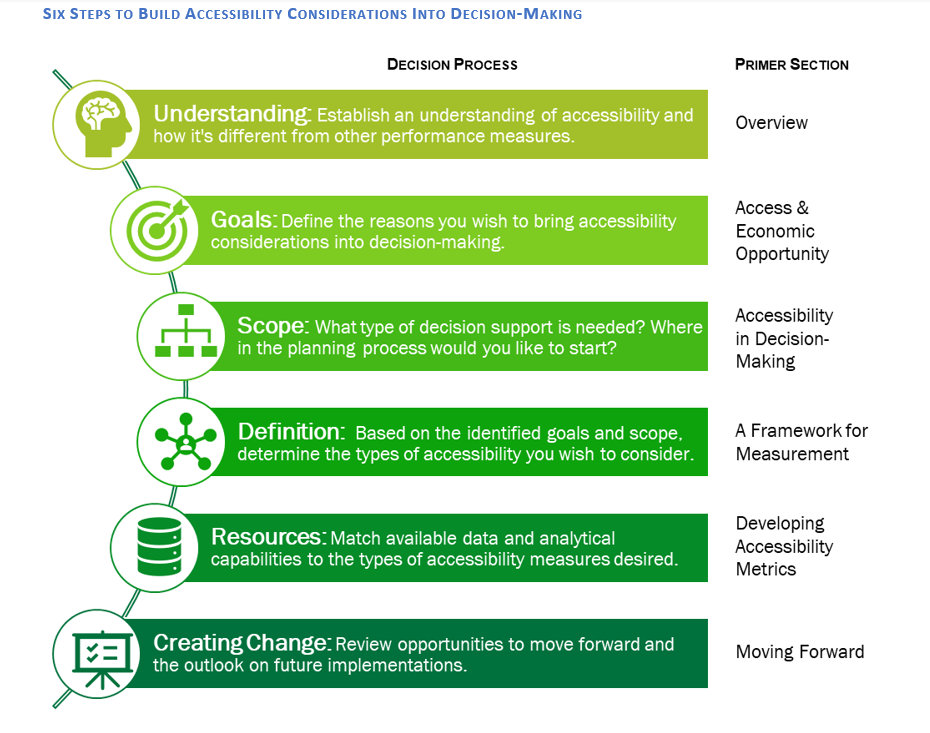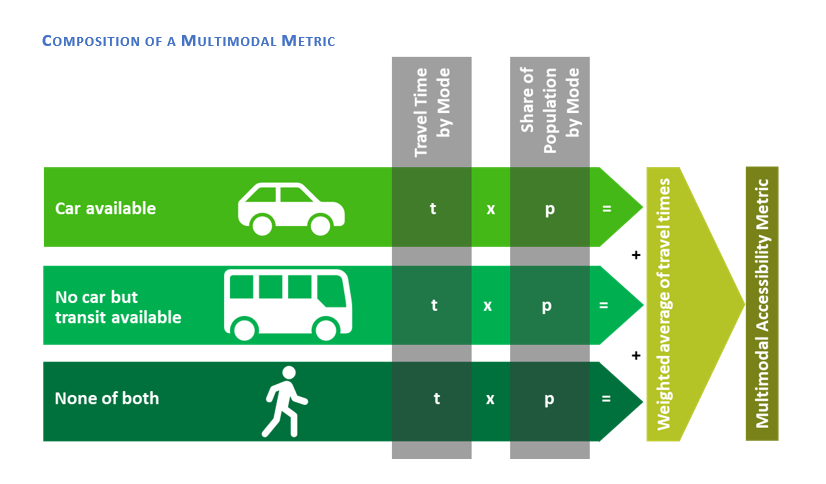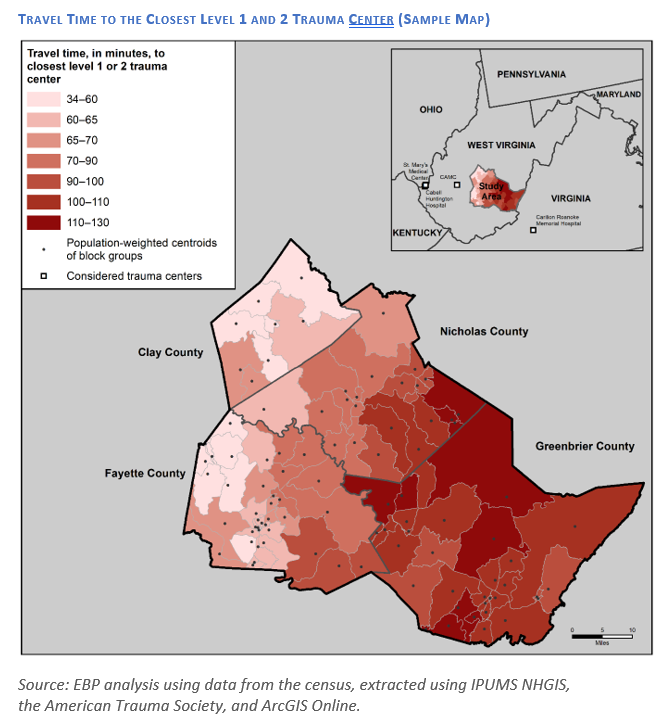

Access in Appalachia
EBP supported the Appalachian Regional Commission (ARC) in defining approaches to accessibility measurement that are relevant to Appalachian needs and concerns.
Accessibility refers to the ability of people to reach desired destinations and activities (or conversely, the ability of business activities to reach workers and customers). Historically, many Appalachian communities have been physically isolated, leading to and compounding a lack of access to jobs, health care, education, and more. The Appalachian Regional Commission was created, in part, to address the region’s physical isolation and resulting socioeconomic setbacks. This study takes a fresh look at transportation challenges through the lens of accessibility, incorporating a multimodal perspective as well as consideration of new data sources.
The study outlines measurement approac
To help advance the goal of more fully integrating access into transportation decision-making, this full research report is accompanied by a more concise companion primer offering guidance on incorporating access concepts into decision-making. The primer is designed to offer an entry point for analysts and decision-makers interested in learning about access issues and measurement, without providing the full methodological detail, theoretical background, and test applications that are included in the full research report.











